Respondent demographics
The survey included responses from a diverse range of genders, ages, and regions across the UK, helping to paint a clearer picture of tenant and landlord relationships.
- Gender: the majority of respondents identified as female (62%), followed by male (35%). A smaller group identified as 'Other' (3%) or preferred not to specify (1%).
- Age: responses varied across age groups, with 32-38-year-olds forming the largest cohort (26%), followed closely by those aged 25-31 (21%). Representation from 18-24-year-olds was comparatively low (6%), with older age groups contributing modestly across the board.
- Region: responses were spread across various UK regions, with the highest representation from the East of England (17%), followed by the South East (13%) and London (12%).
Tenure and living situation
A large proportion of respondents (82%) have been tenants at some point, while 18% indicated they had not. The current living situations varied, with 40% being homeowners, some of whom are also landlords (11%). Among renters, 17% rent privately, while 22% rent from social housing providers. A smaller portion lives with family or friends (10%).
These statistics reveal a notable presence of renters in both private and social housing sectors, showing a strong representation of tenant perspectives.
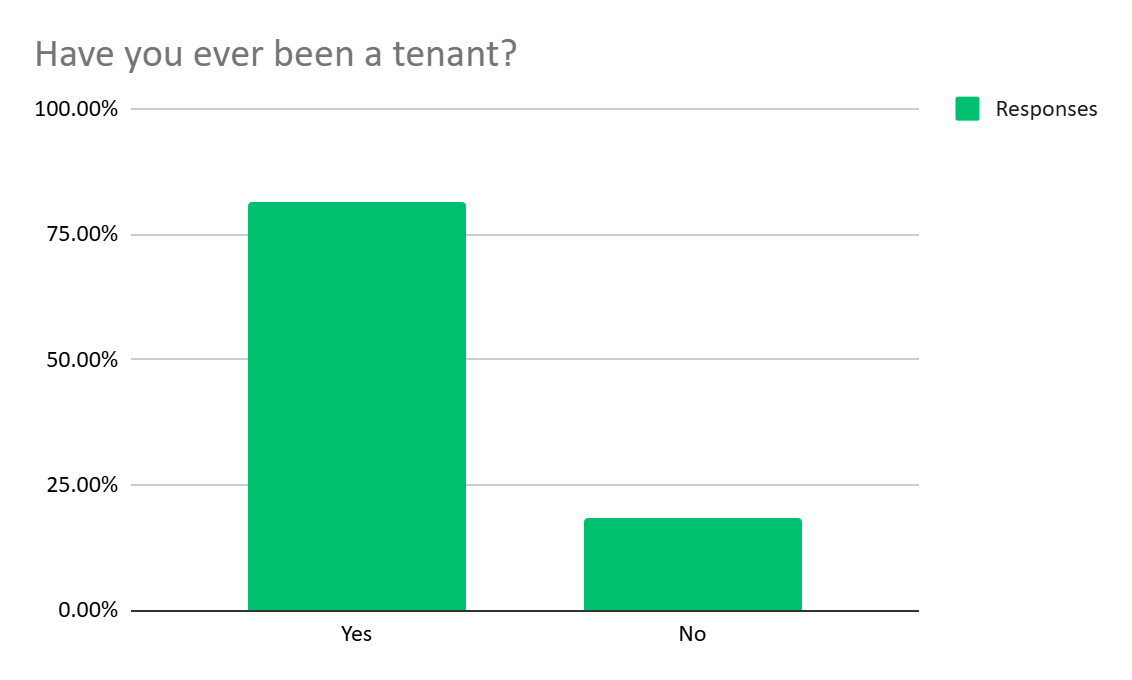
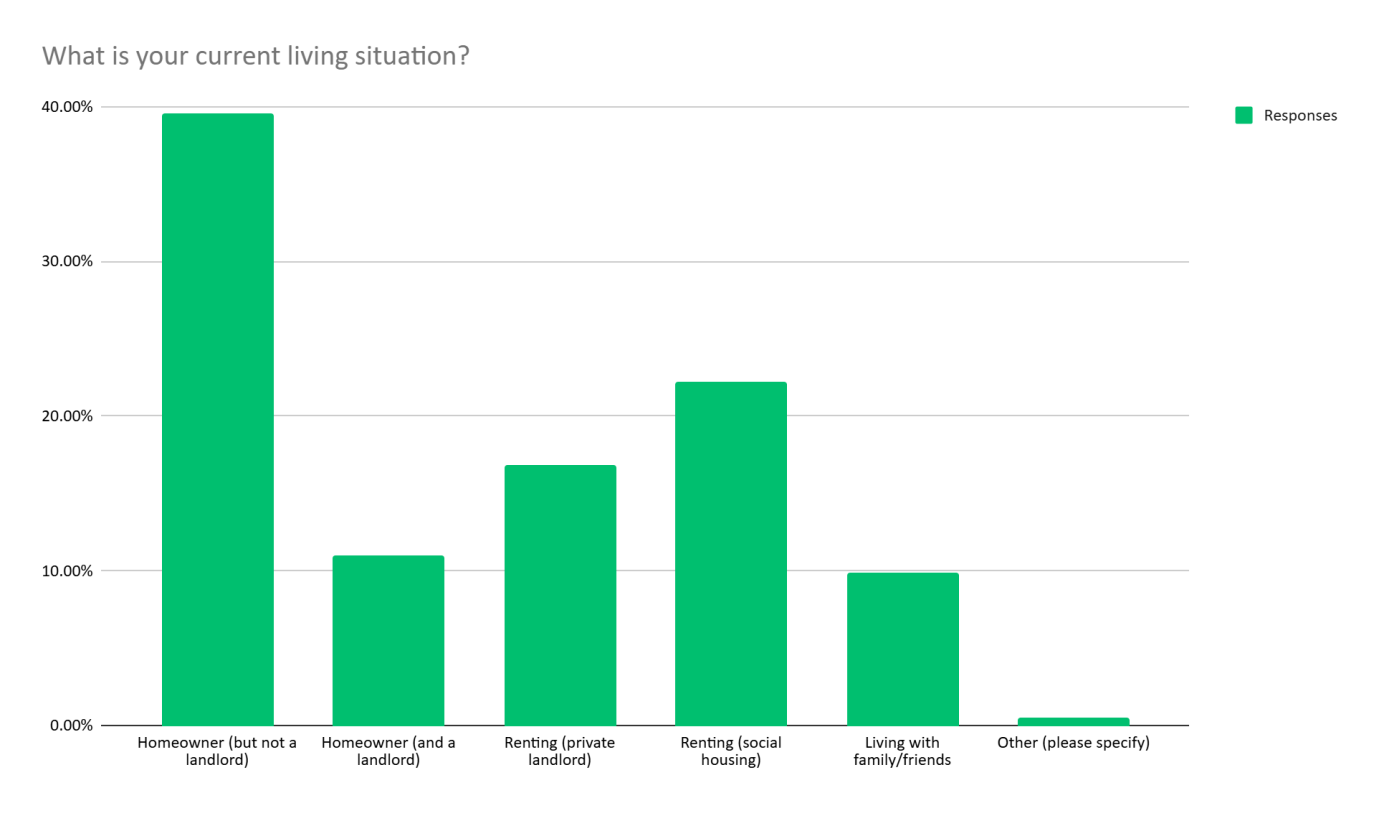
Perception of landlords
Opinions about landlords’ behaviour and practices are mixed but lean towards a positive outlook:
- 44% of respondents view landlords positively and an additional 4.55% very positively. However, 42% held a negative view, with 9% expressing very negative feelings about landlords.
The mixed perspectives indicate a balance between positive experiences and grievances, suggesting areas where landlord-tenant relationships could benefit from improved communication and responsiveness.

Disputes with landlords
A notable number of respondents (44%) reported having experienced a dispute or disagreement with a landlord. This suggests that nearly half of tenants have faced conflicts, underscoring the potential for clearer expectations and communication between both parties.
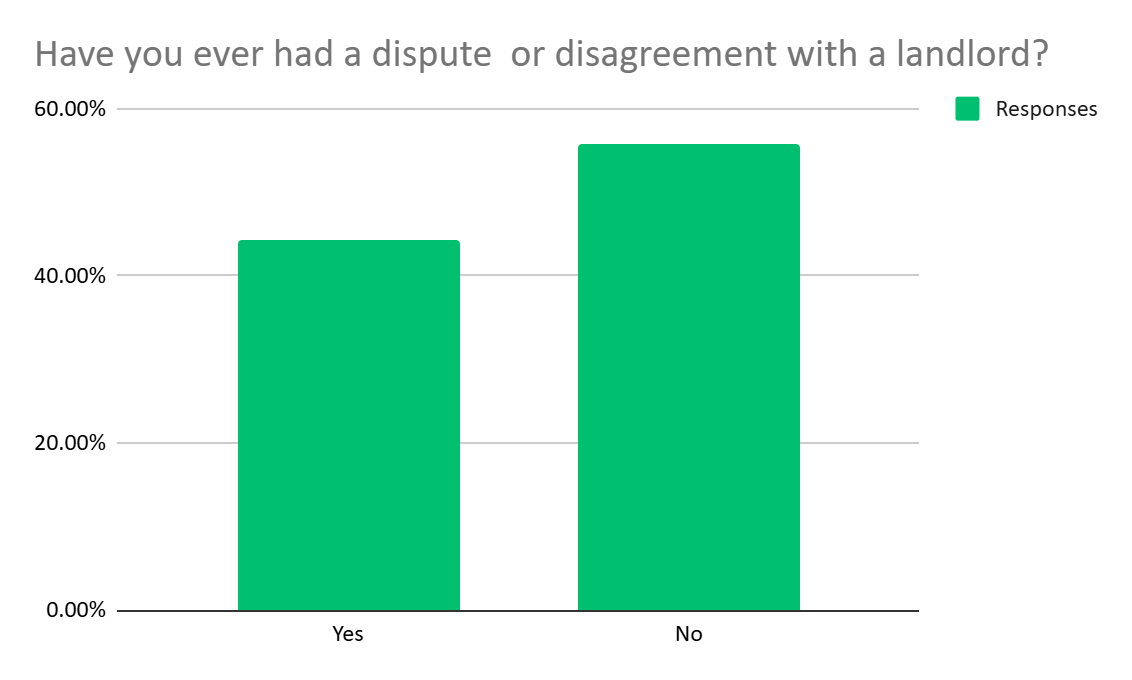
Opinions on landlord rights and tenant protections
When asked about landlords' rights in specific situations, the majority of respondents support landlords’ actions in cases of tenant misconduct or end of tenancy:
- Eviction for illegal activity: a high 93% supported a landlord’s right to evict if a tenant is found engaging in illegal activities within the property.
- Reclaiming property post-tenancy: 79% support landlords’ rights to reclaim their property once a fixed-term tenancy has ended, with 86% agreeing that eviction is acceptable when landlords follow proper procedures and provide ample notice.
These responses reflect support for a landlord’s right to enforce property standards, with the majority advocating a fair balance between landlord rights and tenant protections.

Section 21 evictions
The government’s delay in banning Section 21 evictions has prompted discussion, as these notices allow landlords to terminate tenancies without a breach of the agreement. Among survey respondents, 65% believe Section 21 should be banned, while 35% oppose a ban.
This majority view indicates a preference for added tenant protections, with many respondents potentially valuing stability in their housing situation over the flexibility such notices afford landlords.
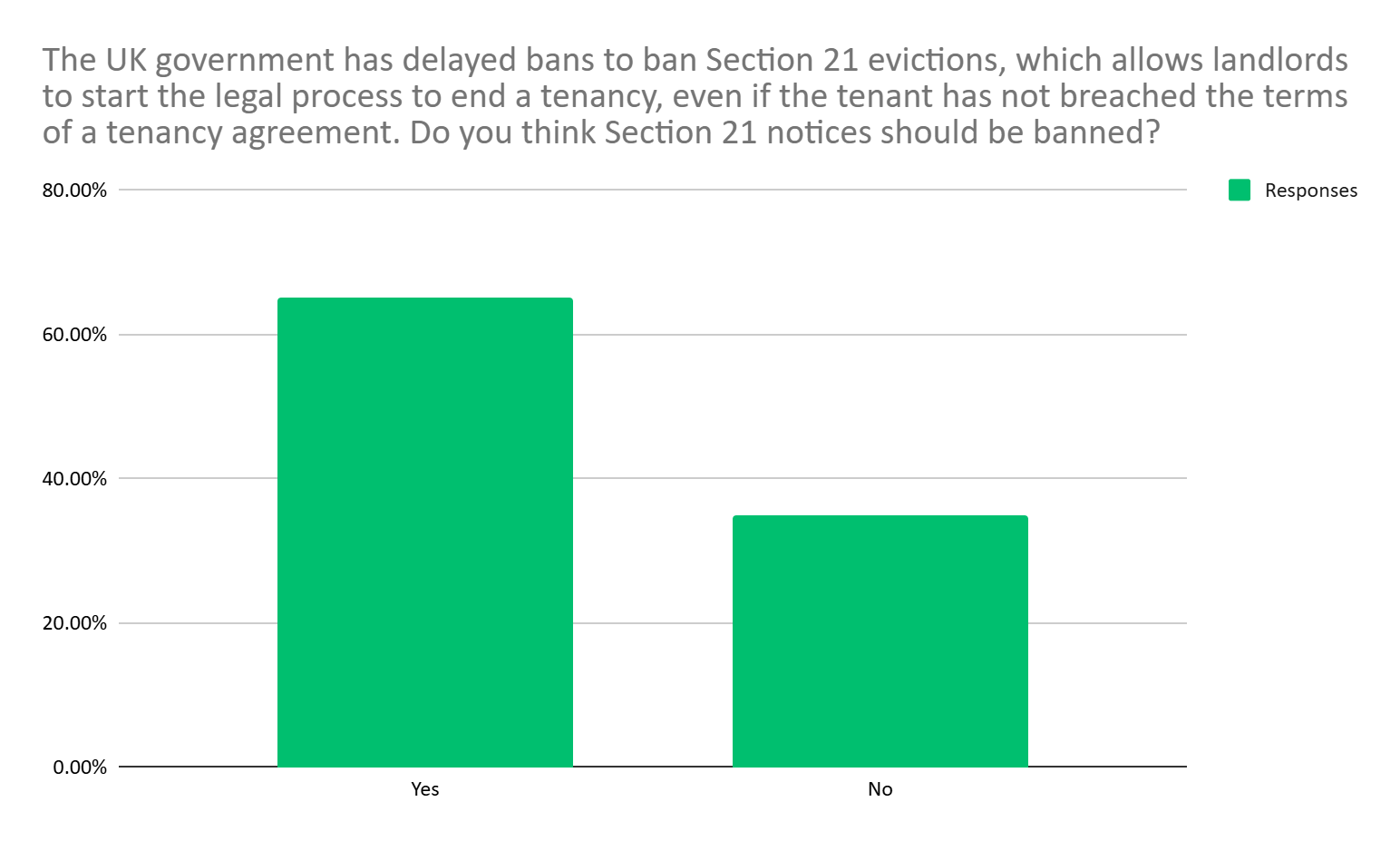
Factors shaping landlord opinions
When considering factors that influence opinions on landlords, the survey found that property upkeep and tenant relations are prominent:
- Property maintenance and quality (35%) and fairness in dealing with tenants (35%) were the most influential factors.
- Responsiveness to tenant needs was also a significant factor (19%), followed by rent prices relative to market rates (12%).
These insights highlight the importance of landlords maintaining good standards within their properties, treating tenants fairly and offering fair rent to foster positive tenant-landlord relationships.

Interest in becoming a landlord
Despite mixed views on landlords, 37% of respondents would consider becoming a landlord in the future, while 17% would definitely pursue it. This interest indicates that, despite some negative perceptions, the potential for property investment and management remains attractive to many.
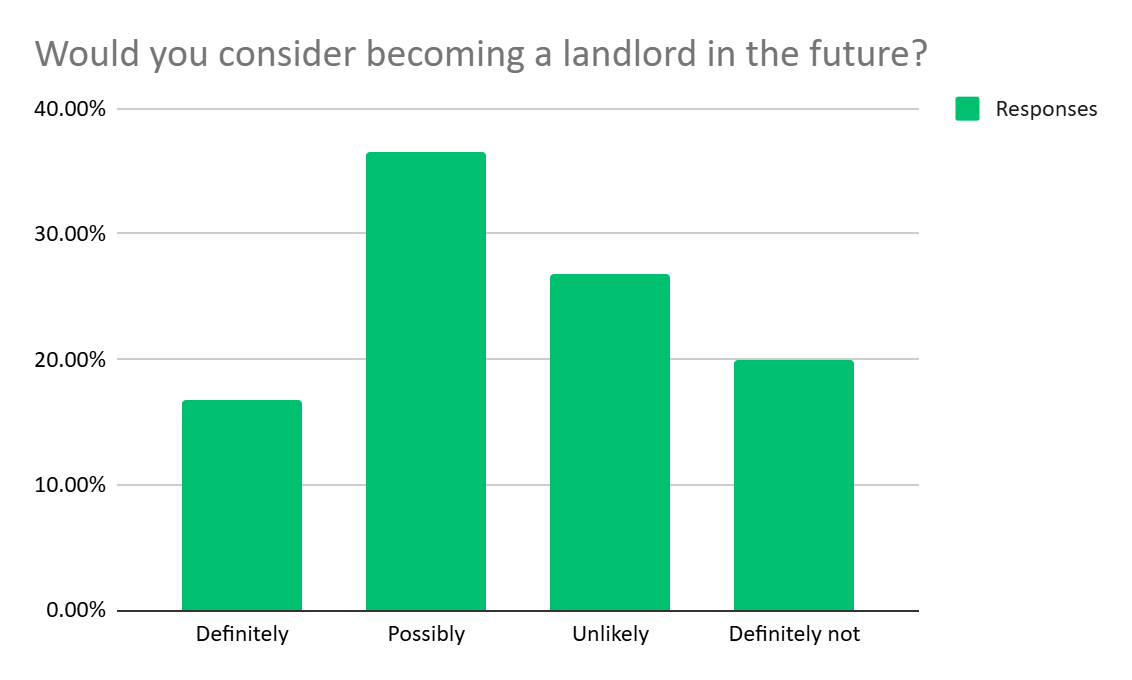
Pet policies
Regarding pets, opinions are divided on the right course of action if a tenant has a pet against lease terms:
- 36% supported giving a warning, followed by eviction if the pet remains.
- 31% prefer allowing the pet with an additional fee, while 26% would take no action if the pet causes no damage.
These responses indicate flexibility among tenants, with many willing to accept pets under specific conditions, such as additional fees or assurances regarding property care.
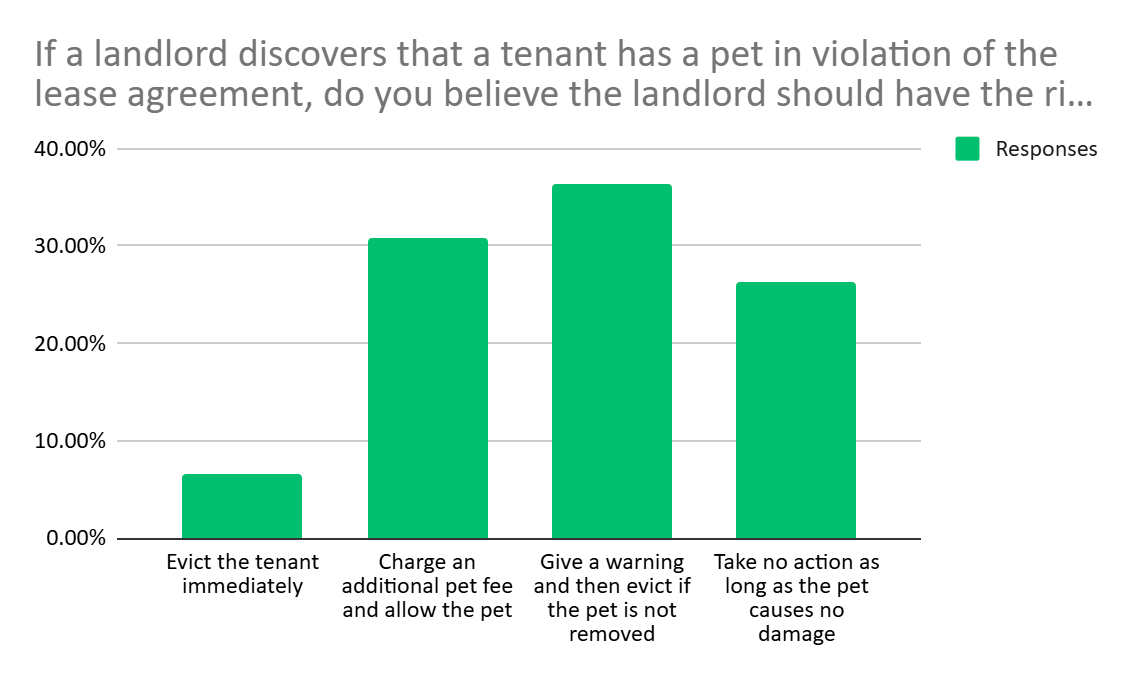
Energy-efficient upgrades
Sustainability remains a growing concern, with 59% of respondents supporting tenant-led energy-efficient upgrades at the tenant’s expense. Another 30% would allow these upgrades only if they enhance property value.
This response reflects an encouraging trend towards energy efficiency, with a majority of respondents in favour of eco-friendly improvements, potentially signalling a positive shift towards sustainability in rental housing.
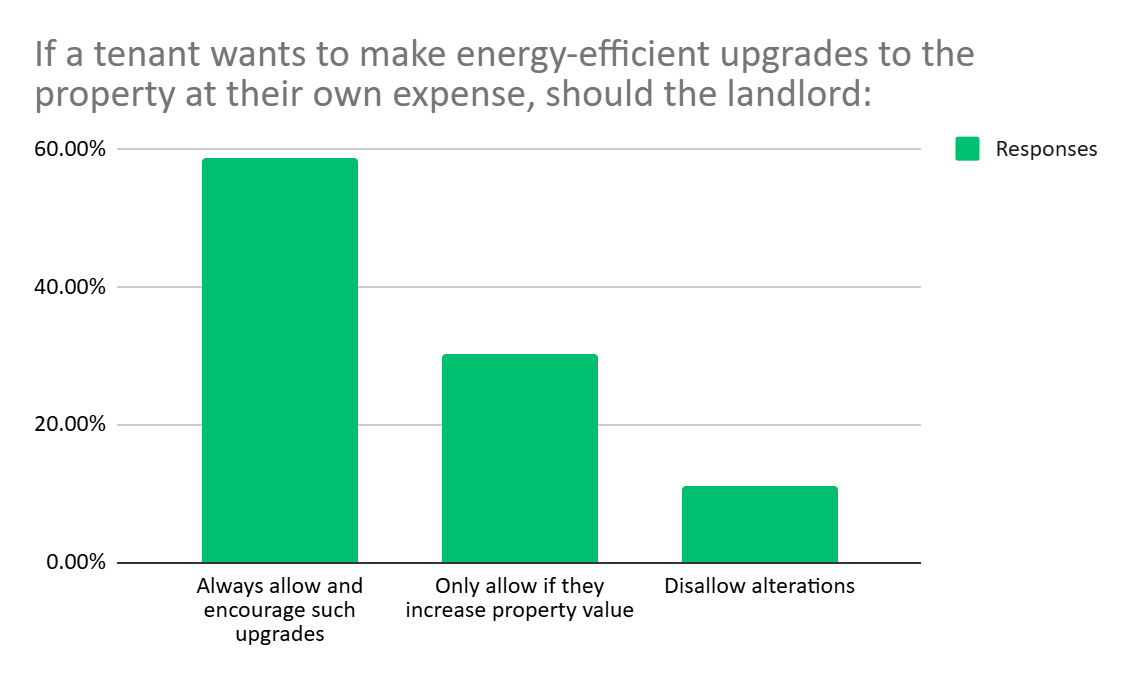
Landlord responsibility during natural disasters
In scenarios where natural disasters damage properties, 48% believe landlords should refund tenants for days the property is uninhabitable, while 24% think landlords should cover alternative accommodation costs. Others felt the landlord’s duty should be limited to ending the lease without penalty (12%).
This view highlights a preference for landlords to provide financial support in unforeseen circumstances, helping to mitigate tenants' challenges in such situations.
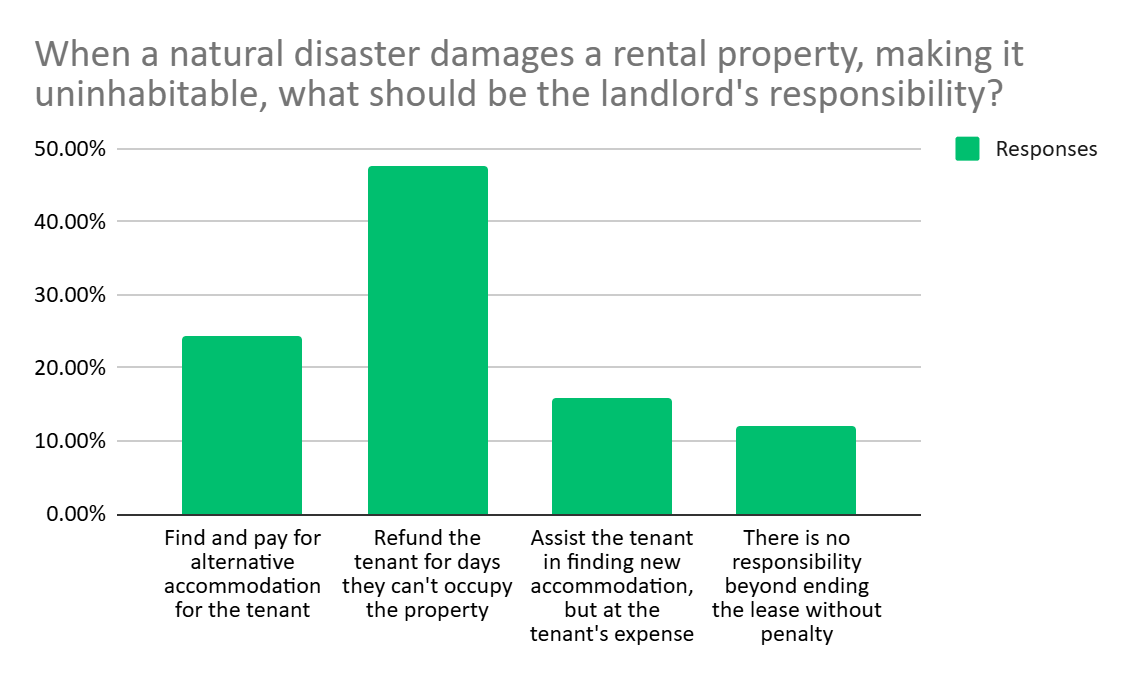
Routine maintenance
Maintenance is another critical topic, with 41% of respondents believing landlords should perform checks every six months, followed by 27% suggesting annual checks. Fewer respondents supported only responding to tenant-reported issues (9%).
Regular checks appear to be a reasonable expectation among tenants, who may see these checks as a proactive way to maintain property quality and safety.
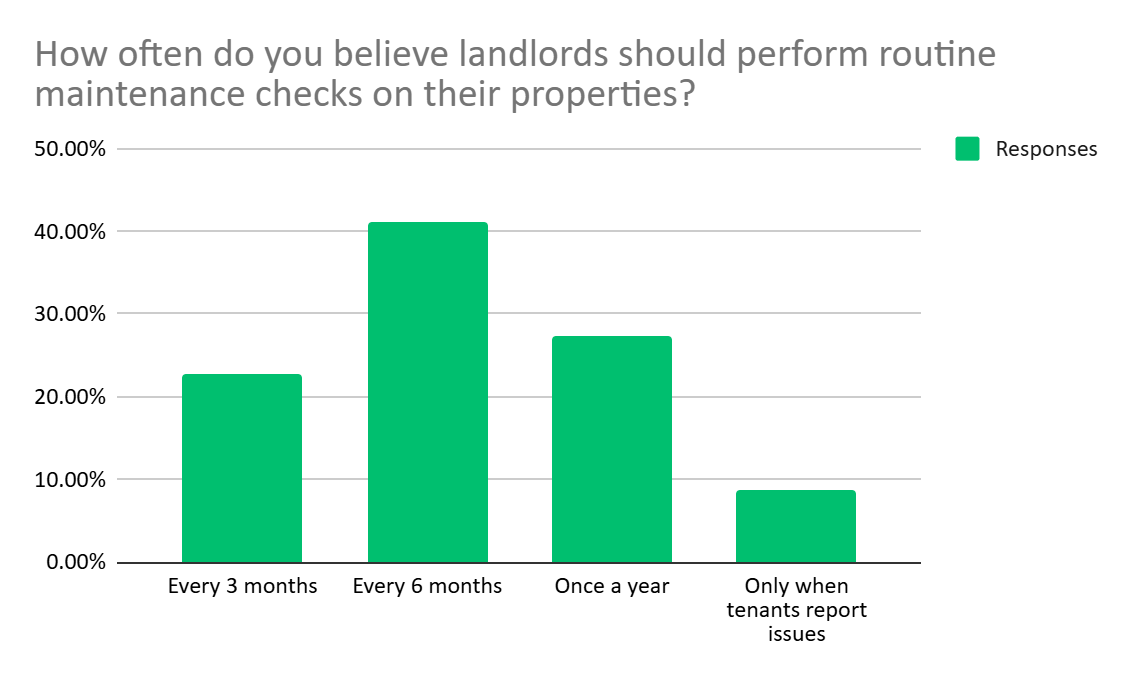
Rent negotiation
Rent negotiation has been attempted by some respondents, with 24% managing successful negotiations and 20% having attempted but failed. However, a large portion (42%) have never tried negotiating, and 14% did not know negotiation was an option.
These figures suggest that while rent negotiation is not universally practised, there is some awareness and willingness to engage in discussions about lease terms.
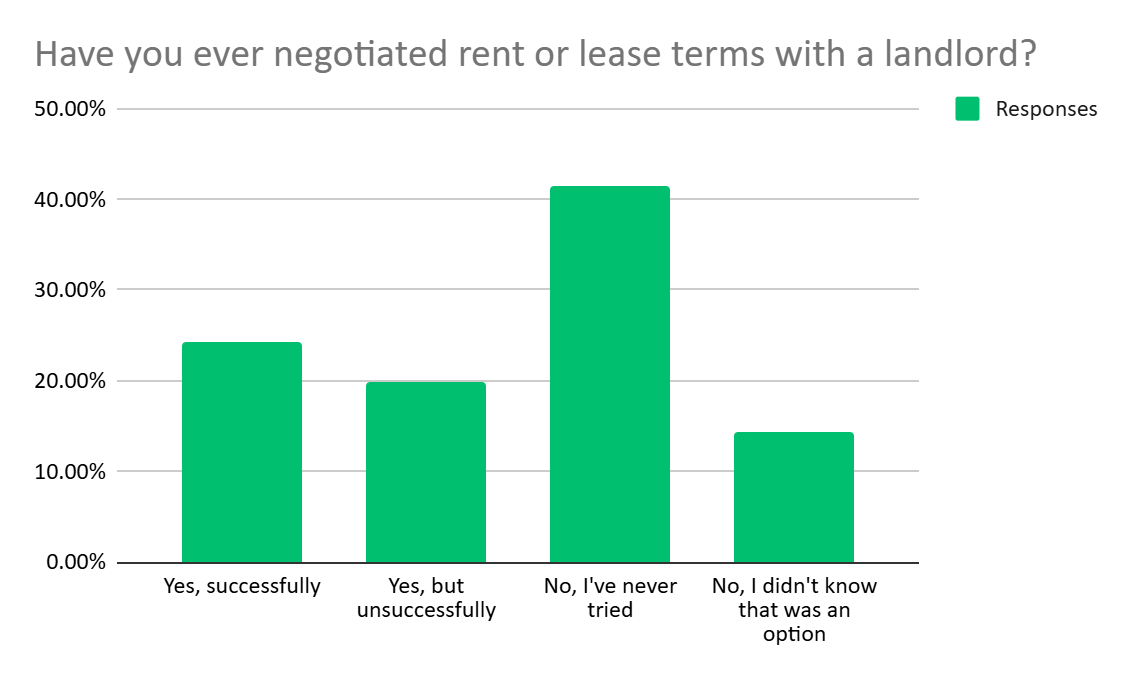
Views on rent prices
When asked if rent prices reflect property quality and amenities, 58% responded that prices were too high for the quality offered, while 42% felt prices were fair. This feedback points to possible dissatisfaction with rental value, highlighting a gap between rental costs and perceived property standards.
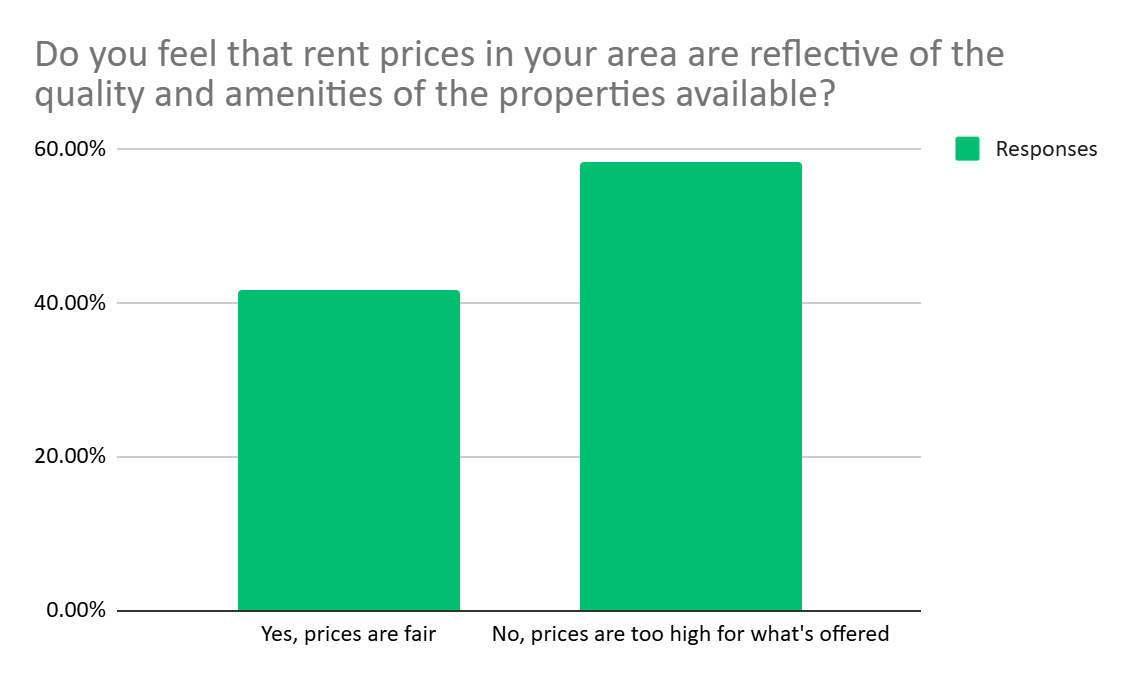
Get in touch with AST Assistance for all forms of landlord-tenant mediation services. Call 0161 477 6600 or fill out our contact form to request a call back at your convenience.
